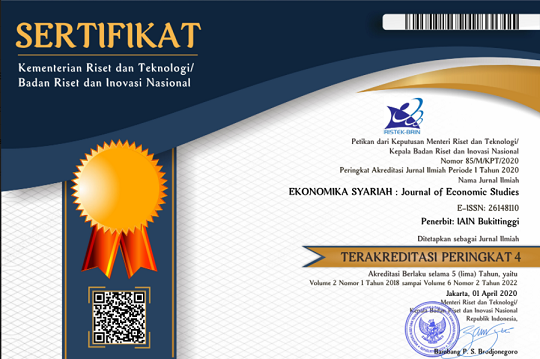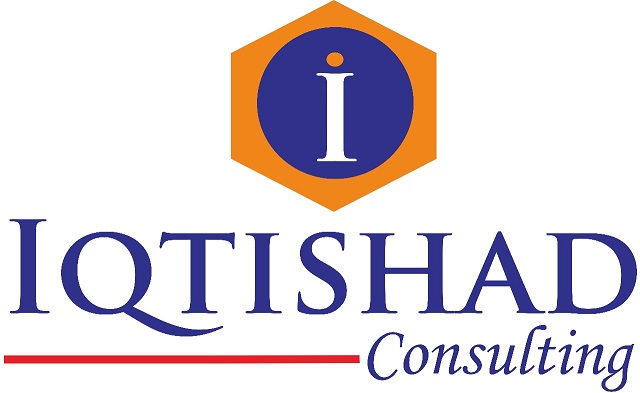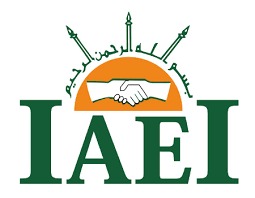The Policy Responses towards Contemporary Islamic Capital Market in Indonesia: The Dynamics and Challenges
DOI:
https://doi.org/10.30983/es.v5i1.4298Keywords:
Islamic Capital Market, Islamic capital market, investment, regulation, product, practice, policy.Abstract
Islamic capital market has been developed to anticipate the need for capital management in the Islamic industry that grows rapidly. This paper will study the dynamics and the contemporary challenges of capital market industry products. The research utilizes a qualitative approach by searching data and information from relevant literatures, specific data, and information from regulators. The researcher conducts analytical studies literature after collecting and compiling data from relevant literatures. This study shows that Islamic capital markets have attempted to reach certain standards based on the criteria of Islamic teaching. However, this study found that globally and nationally the development of Islamic capital markets is still struggling with regulatory, products, and practices problems. This study indicates that the Islamic capital market regulator in Indonesia still needs wider socialization and more efforts to increase the low level of literacy and inclusion.
Â
Pasar modal syariah dikembangkan untuk mengantisipasi kebutuhan pengelolaan modal di industri syariah yang tumbuh pesat. Tulisan ini mengkaji dinamika dan tantangan kontemporer produk industri pasar modal. Penelitian ini menggunakan pendekatan kualitatif dengan mencari data dan informasi dari literatur yang relevan dan data dan informasi spesifik dari regulator. Peneliti melakukan studi analitik literatur setelah mengumpulkan dan menyusun data dari literatur yang relevan. Studi ini menunjukkan bahwa pasar modal syariah telah berusaha mencapai standar tertentu berdasarkan kriteria ajaran Islam. Namun, penelitian ini menemukan bahwa secara global dan nasional perkembangan pasar modal syariah masih berkutat dengan masalah regulasi, produk dan praktik. Hasil penelitian ini menunjukkan bahwa regulator pasar modal syariah di Indonesia masih membutuhkan usaha-usaha sosialisasi yang lebih luas untuk meningkatkan literasi dan inklusi pasar modal syariah yang masih rendah di Indonesia.
Â
References
Book
Abdul Karim, B., Kassim, A.M.N. and Arip, A.M. (2010), “The subprime crisis and Islamic stock
Ahmad, A.U.F. (2016), "Regulation, Performance and Future Challenges of Sukuk: The Evidence from Asian Markets", Mutum, D.S., Butt, M.M. and Rashid, M. (Ed.) Advances in Islamic Finance, Marketing, and Management, Emerald Group Publishing Limited, Bingley, pp. 27-48. https://doi.org/10.1108/978-1-78635-899-820161003
Hassan, M. K., and E. Girard (2011). Faith-based ethical investing: The case of Dow Jones Islamic indexes. Working Paper. Networks Financial Institute, Indiana State University.
Michael Saleh Gassner (2007), “Exchanges and Islamic Financeâ€, The Handbook of World Stock, Derivative and Commodity Exchanges.
Zamir Iqbal and Abbas Mirakhor, (2007) An Introduction to Islamic Finance: Theory and Practice. Clementi Loop Singapore, John Wiley & Sons, 198-201.
Journal
Abbes, M.B. (2012), “Risk and return of Islamic and conventional indicesâ€, International Journal of Euro-Mediterranean Studies, Vol. 5, pp. 1-23
Abbes, M.B. and Trichilli, Y. (2015), “Islamic stock markets and potential diversification benefitsâ€, Borsa Istanbul Review, Vol. 15, pp. 93-105.
Abduh, M. and Omar, M.A. (2012), “Islamic banking and economic growth: The Indonesian experienceâ€, International Journal of Islamic and Middle Eastern Finance and Management, Vol. 5 No. 1, pp. 35-47.
Abduh, M., Brahim, S. and Omar, M.A. (2012), “A study on finance-growth nexus in dual financial system countries: evidence from Bahrainâ€, World Applied Sciences Journal, Vol. 20 No. 8, pp. 1166-1174.
Ahmad Audu Maiyaki, (2013) “Principles of Islamic Capital Marketâ€, International Journal of Academic Research in Accounting, Finance and Management Sciences, Vol. 3 (4), pp.278–283.
Ajagbe T. S. and Brimah A. N, (2013) “Islamic Banking development and evolution: current issues and future prospects,†Journal of Research in International Business and Management (ISSN: 2251-0028) Vol. 3(2) pp. 73-79, February. Online accessed https://www.interesjournals.org/articles/islamic-banking-development-and-evolution-current-issues-and-future-prospects.pdf.
Al Fathan, R. and Arundina, T. (2019), “Finance-growth nexus: Islamic finance development in Indonesiaâ€, International Journal of Islamic and Middle Eastern Finance and Management, Vol. 12 No. 5, pp. 698-711.
Alam, M.M. and Akbar, C.S. (2015) ‘Rationality of the capital market: capitalistic system vs. Islamic system’, Int. J. Behavioural Accounting and Finance, Vol. 5, Nos. 3/4, pp.279–297.
Alam, M.M. and Akbar, C.S. (2015) ‘Rationality of the capital market: capitalistic system vs. Islamic system’, Int. J. Behavioural Accounting and Finance, Vol. 5, Nos. 3/4, pp.279–297.
Alam, N., and M. S. Rajjaque. 2010. Shariah-compliant equities: Empirical evaluation of performance in the European market during credit crunch. Journal of Financial Services Marketing 15 (3):228–40.
Albaity, M., & Ahmad, R. (2008). Performance of Syariah and Composite Indices: Evidence from Bursa Malaysia. Asian Academy of Management Journal of Accounting and Finance, 4(1), 23-43.
Azmat, Saad, Skully, Michael, Brown, Kym, The (little) difference that makes all the difference between Islamic and conventional bonds, Pacific-Basin Finance Journal (2015)
Azmi, A., Non, N. and Ab Aziz, N. (2017), "Challenges to Shariah equity screening, from Shariah scholars’ perspective", International Journal of Islamic and Middle Eastern Finance and Management, Vol. 10 No. 2, pp. 229-242. https://doi.org/10.1108/IMEFM-11-2016-0165
Canepa, A. and Ibnrubbian, A. (2014), “Does faith move stock markets? Evidence from Saudi Arabiaâ€, The Quarterly Review of Economics and Finance, Vol. 54, pp. 538-550.
Dusuki, A.W. (2009), Challenges of Realizing Maqasid al-Shariah (Objectives of Shari’ah) in Islamic Capital Market: Special Focus on Equity-Based Sukuk. 3rd USM-ISDEV International Islamic Management Conference on Islamic Capital Market, 28th and 29th October 2009, USM, Penang.
El Maknouzi, M.E.H. and Jadalhaq, I.M. (2020), "Where are Islamic finance indices pointing towards? Lessons from experimental ‘pockets’ of Islamic financial regulation on international stock markets", Journal of Financial Regulation and Compliance, Vol. 28 No. 2, pp. 267-281. https://doi.org/10.1108/JFRC-03-2019-0040
Erragragui, E., Hassan, M.K., Peillex, J. and Khan, A.N.F. (2018), “Does ethics improve stock market resilience in times of instability?â€, Economic Systems, Vol. 42 No. 3, pp. 450-469.
Furqani, H., & Mulyany, R. (2009). Islamic banking and economic growth: Empirical evidence from Malaysia. Journal of Economic Cooperation & Development 30 (2): 38-51
Gani Ibrahim Musa, Zakaria Bahari, Azreen Hamiza Abdul Aziz, (2020) The Impact of Islamic Capital Market on Malaysian Real Economy: (Impak Pasaran Modal Islam ke atas Ekonomi Benar Rakyat Malaysia), Jurnal Ekonomi Malaysia 54(2).
Ginanjar, A. (2014). Islamic Financial Engineering: Comparative Study Agreements in Islamic Capital Market in Malaysia and Indonesia. Tazkia Islamic Finance and Business Review, 8(1).
Goaied, M. and Sassi, S. (2011), “Financial development, Islamic banking and economic growth evidence from MENA regionâ€, International Journal of Business and Management Science, Vol. 4 No. 2, pp. 105-128.
Hassan, M.K., Sanchez, B. and Yu, J.S. (2011), “Financial development and economic growth in the organization of Islamic conference countriesâ€, Journal of King Abdulaziz University – Islamic Economics, Vol. 24 No. 1, pp. 145-172
Iqbal Anjum, M. (2008), "Islamic world's development policy responses to the challenges of financial globalization", Humanomics, Vol. 24 No. 1, pp. 5-16. https://doi.org/10.1108/08288660810851432
Jamal, J., Hambali, N., & Ali, H. M. (2010). Islamic Capital Market and Shari’ah Screening in Malaysia. International Research Symposium in Service Management.
Kassim, S. (2016), “Islamic finance and economic growth: the Malaysian experienceâ€, Global Finance Journal, Vol. 30, pp. 66-76.
Kenourgios, D., Naifar, N. and Dimitriou, D. (2016), “Islamic financial markets and global crises: contagion or decoupling?â€, Economic Model, Vol. 57, pp. 36-46.
markets integrationâ€, International Journal of Islamic and Middle Eastern Finance and Management, Vol. 3, pp. 363-371
McMillen, Michael J. T. “Islamic Capital Markets: Developments and Issues,†Capital Markets Law Journal, Vol. 1, No. 2, p. 136.
Mohammad Taqiuddin Mohamad et.al., (2013) “The historical development of modern Islamic banking: A study in South-east Asia countries,†African Journal of Business Management. Accessed at https://umexpert.um.edu.my/file/publication/00008863_ 98913.pdf.
Muhamad Abduh, Raditya Sukmana, “The Role of Stock Markets in Promoting Economic Growth in Malaysia: Islamic vis-à -vis Conventionalâ€, Global Review of Islamic Economics and Business, Vol. 1, No.1 (2013) 001-010.
Muhammad Syafii Antonio, Hafidhoh Hafidhoh, Hilman Fauzi, “The Islamic Capital Market Volatility: A Comparative Study Between In Indonesia And Malaysiaâ€, Buletin Ekonomi Moneter Dan Perbankan: Vol 15 No 4 (2013).
Muneeza, A. (2018), "Establishment of Islamic capital market in jurisdictions with limited Islamic financial services: Case study of Maldives", International Journal of Law and Management, Vol. 60 No. 2, pp. 373-385. https://doi.org/10.1108/IJLMA-12-2016-0146and Finance, June, Vol. 3, No. 1, pp. 12-25. Online accessed at http://jibfnet.com/journals/jibf/Vol_3 _No_1_June_2015/2.pdf.
Muneeza, A. (2018), "Establishment of Islamic capital market in jurisdictions with limited Islamic financial services: Case study of Maldives", International Journal of Law and Management, Vol. 60 No. 2, pp. 373-385. https://doi.org/10.1108/IJLMA-12-2016-0146
Muneeza, Aishath. (2018). How far has the Maldives progressed in achieving its Islamic capital market objectives? Islamic Finance News, (July 2018), pp. 19.
Naz, S.A. and Gulzar, S. (2020), “Impact of Islamic finance on economic growth: an empirical analysis of Muslim countriesâ€, Singapore Economic Review.
Novita Sari, Syamsurijal AK, Marlina Widiyanti, “The Impact Of Islamic Capital Market Development On Economic Growth: The Case Of Indonesia,†Journal of Smart Economic Growth, Vol 3 No 2 (2018): 3-2-2018.
Pok, W. C. (2012) Analysis of Syariah Quantitative Screening Norms Among Malaysia Syariah-Compliant Stocks. Investment Management and Financial Innovations, 9(2), 69-80.
Qoyum, Abdul; mardiya, Milzamulhaq; sakti, Muhammad Rizky Prima (2018). “Indonesian Capital Market Efficiency: Islamic vis-a-vis Conventional.†Shirkah: Journal of Economics and Business, [S.l.], v. 2, n. 3, jan. 2018. ISSN 2503-4243. doi:http://dx.doi.org/10.22515/shirkah.v2i3.171.
Rahman, A. A., Yahya, M. A., & Nasir, M. H. M. (2010, August). Islamic Norms For Stock Screening: A Comparison Between The Kuala Lumpur Stock Exchange Islamic Index And The Dow Jones Islamic Market Index, International Journal of Islamic and Middle Eastern and Management, 3, 228-240.
Renie, E., Luth, T., & Hamidah, S. (2019). “The Legal Construction of Sharia Capital Market in Indonesia.†JL Pol'y & Globalization, 82, 32.
Rodney Wilson, “Regulatory challenges posed by Islamic capital market products and servicesâ€, IOSCO task force on Islamic capital market, https://www.sc.com.my/wp-content/uploads/eng/html/iaffairs/ ioscoislamicpdf/Wilson Melbourne-final.pdf.
Rusni Hassan and Syed Ahmed Salman (2017), “Guiding Principles in Developing Shari’ah Governance Framework for Islamic Capital Marketâ€, International Journal of Economic Research, January.
Shabri Majid, A.M. and Yusof, R.M. (2009), “Long-run relationship between Islamic stock returns and macroeconomic variablesâ€, Humanomics, Vol. 25, pp. 127-141
Syed Faiq Najeeb and Mirza Vejzagic, (2013) “Development, Growth and Challenges of Islamic Capital Markets: Comparative Insights from the Malaysian, Indonesian, United Arab Emirates and Brunei Markets,†Journal of Emerging Economies and Islamic Research, Vol.1 No.3.
Walkshausl, C. and Lobe, S. (2012), “Islamic investingâ€, Review of Financial Economics, Vol. 21, pp. 53-62.
Zarrouk, H., El Ghak, T. and Abu Al Haija, E. (2017), “Financial development, Islamic finance and economic growth: evidence of the UAEâ€, Journal of Islamic Accounting and Business Research, Vol. 8 No. 1, pp. 2-22
Downloads
Published
How to Cite
Issue
Section
Citation Check
License
Authors who publish with this journal agree to the following terms:
- Authors retain copyright and grant the journal right of first publication with the work simultaneously licensed under a Creative Commons Attribution-ShareAlike 4.0 International License that allows others to share the work with an acknowledgment of the work's authorship and initial publication in this journal.
- Authors are able to enter into separate, additional contractual arrangements for the non-exclusive distribution of the journal's published version of the work (e.g., post it to an institutional repository or publish it in a book), with an acknowledgment of its initial publication in this journal.
- Authors are permitted and encouraged to post their work online (e.g., in institutional repositories or on their website) prior to and during the submission process, as it can lead to productive exchanges, as well as earlier and greater citation of published work (See The Effect of Open Access).





